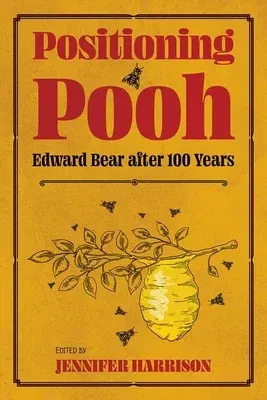Contributions by Megan De Roover, Jennifer Harrison, Sarah Jackson, Zoe
Jaques, Nada Kujundzic, Ivana Milkovic, Niall Nance-Carroll, Perry
Nodelman, David Rudd, Jonathan Chun Ngai Tsang, Nicholas Tucker, Donna
Varga, and Tim Wadham
One hundred years ago, disparate events culminated in one of the most
momentous happenings in the history of children's literature.
Christopher Robin Milne was born to A. A. and Dorothy "Daphne" Milne;
Edward Bear, a lovable stuffed toy, arrived on the market; and a living,
young bear named Winnie settled in at the London Zoo. The collaboration
originally begun by the Milnes, E. H. and Florence Shepard, Winnie
herself, and the many toys and personalities who fed into the Pooh
legend continued to evolve throughout the twentieth and twenty-first
centuries to become a global phenomenon. Yet even a brief examination of
this sensation reveals that Pooh and his adventures were from the onset
marked by a rich complexity behind a seeming simplicity and innocence.
This volume, after a decades-long lull in concentrated Pooh scholarship,
seeks to highlight the plurality of perspectives, modes, and
interpretations these tales afford, especially after the Disney
Corporation scooped its paws into the honeypot in the 1950s.
Positioning Pooh: Edward Bear after One Hundred Years argues the
doings of Pooh remain relevant for readers in a posthuman,
information-centric, media-saturated, globalized age. Pooh's forays
destabilize social certainties on all levels--linguistic, ontological,
legal, narrative, political, and so on. Through essays that focus on
geography, language, narrative, characterization, history, politics,
economics, and a host of other social and cultural phenomena,
contributors to this volume explore how the stories open up discourses
about identity, ethics, social relations, and notions of belonging. This
first volume to offer multiple perspectives from multiple authors on the
Winnie-the-Pooh books in a single collection focuses on and develops
approaches that bring this classic of children's literature into the
current era. Essays included not only are of relevance to scholars with
an interest in Pooh, Milne, and the "golden age" of children's
literature, but also showcase the development of children's literature
scholarship in step with exciting modern developments in literary
theory.


